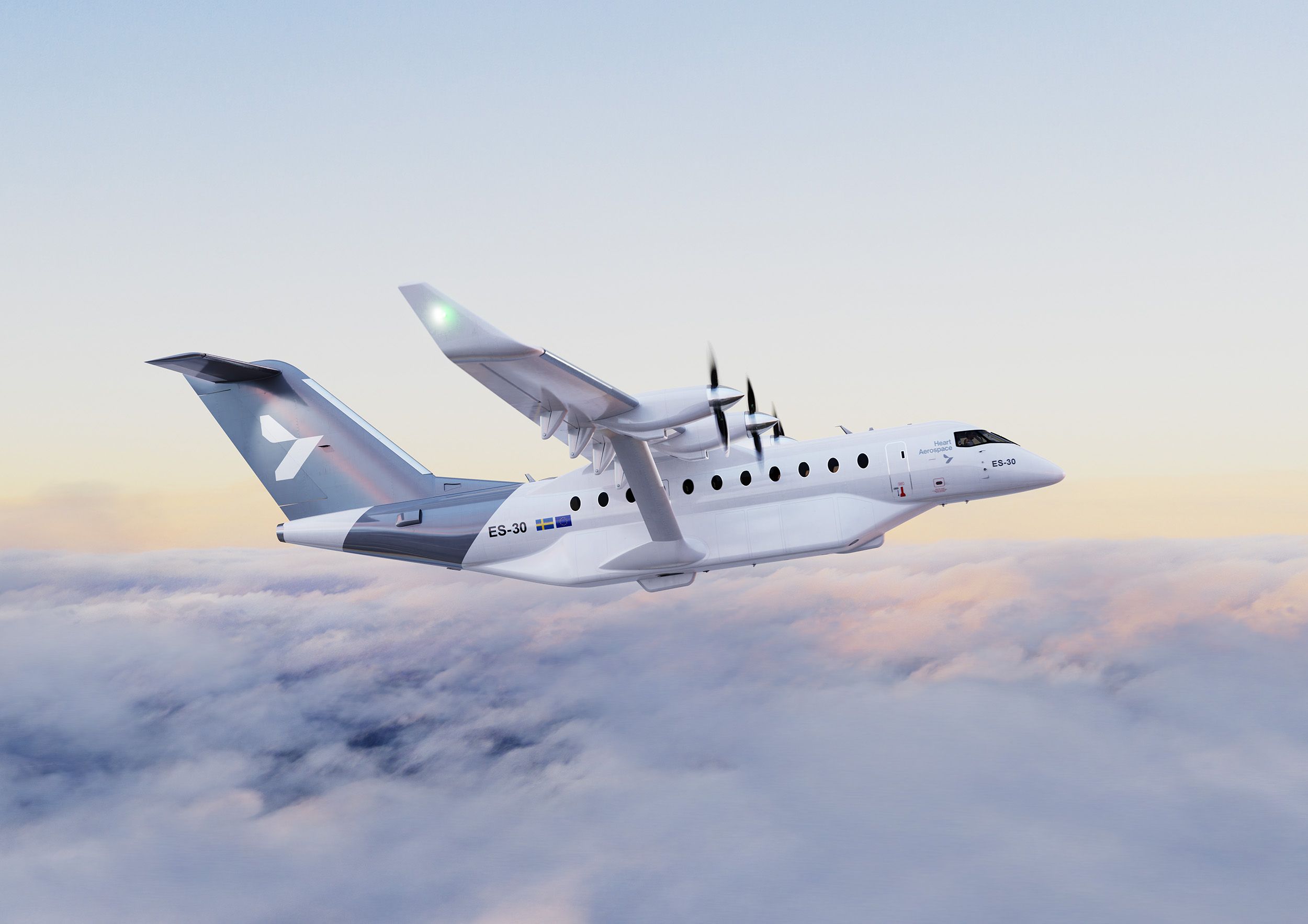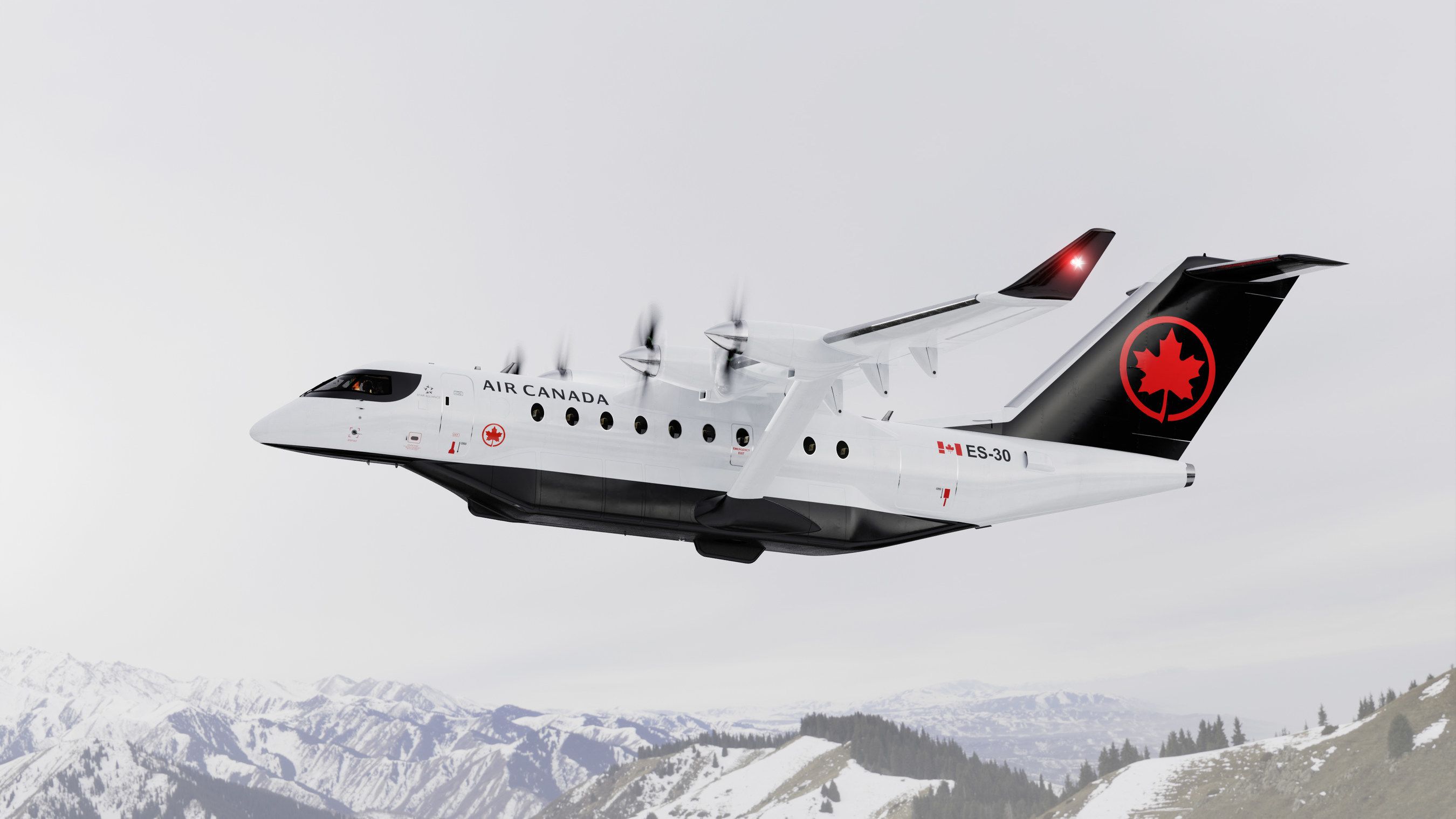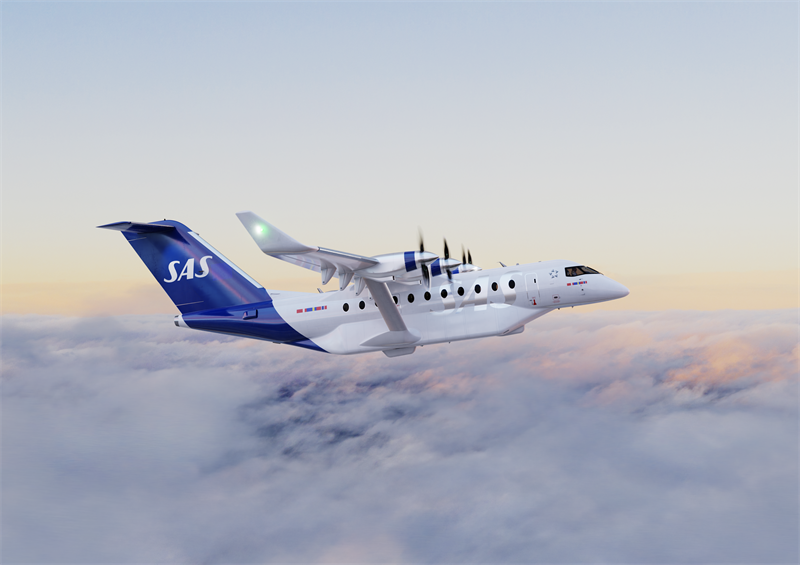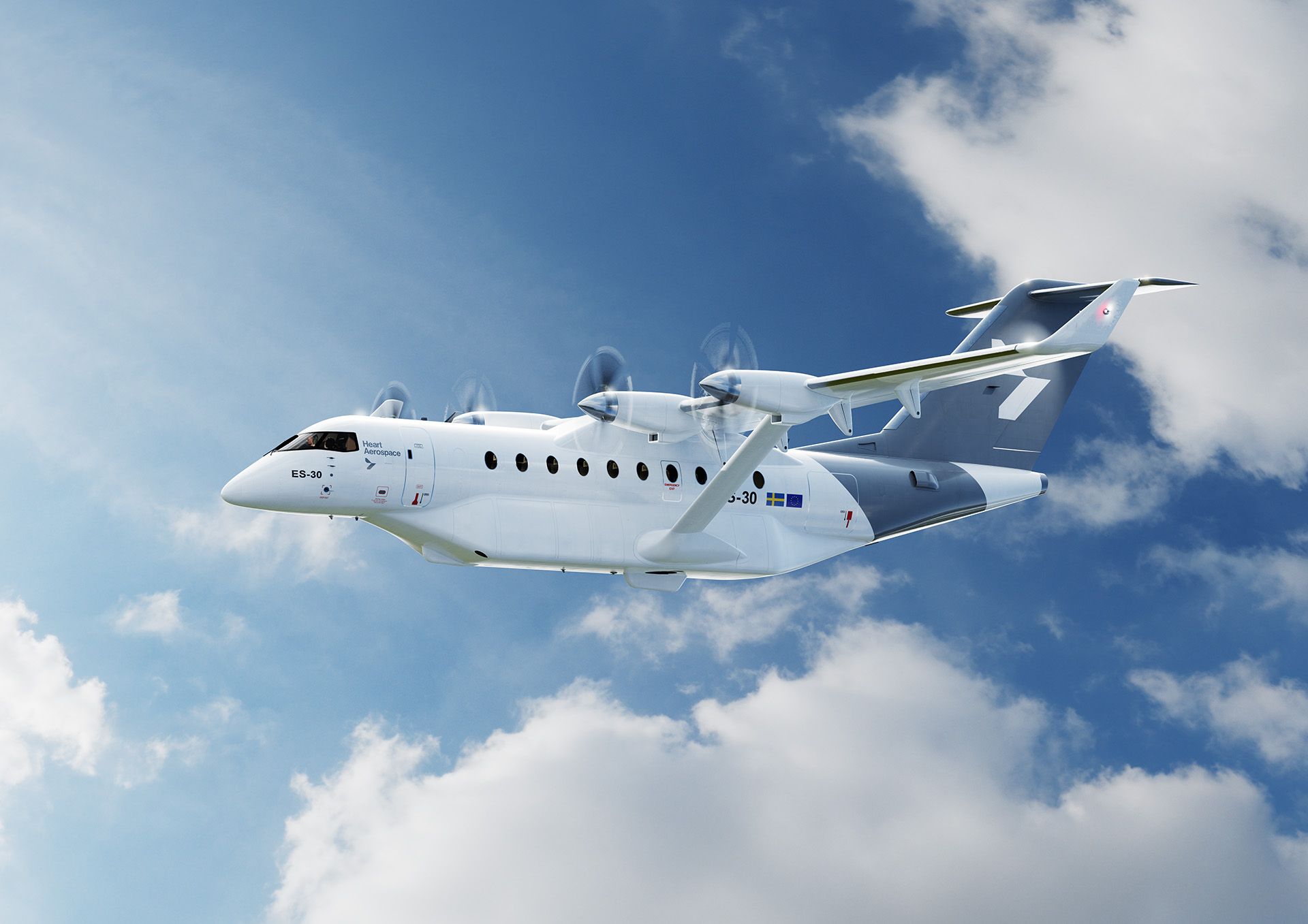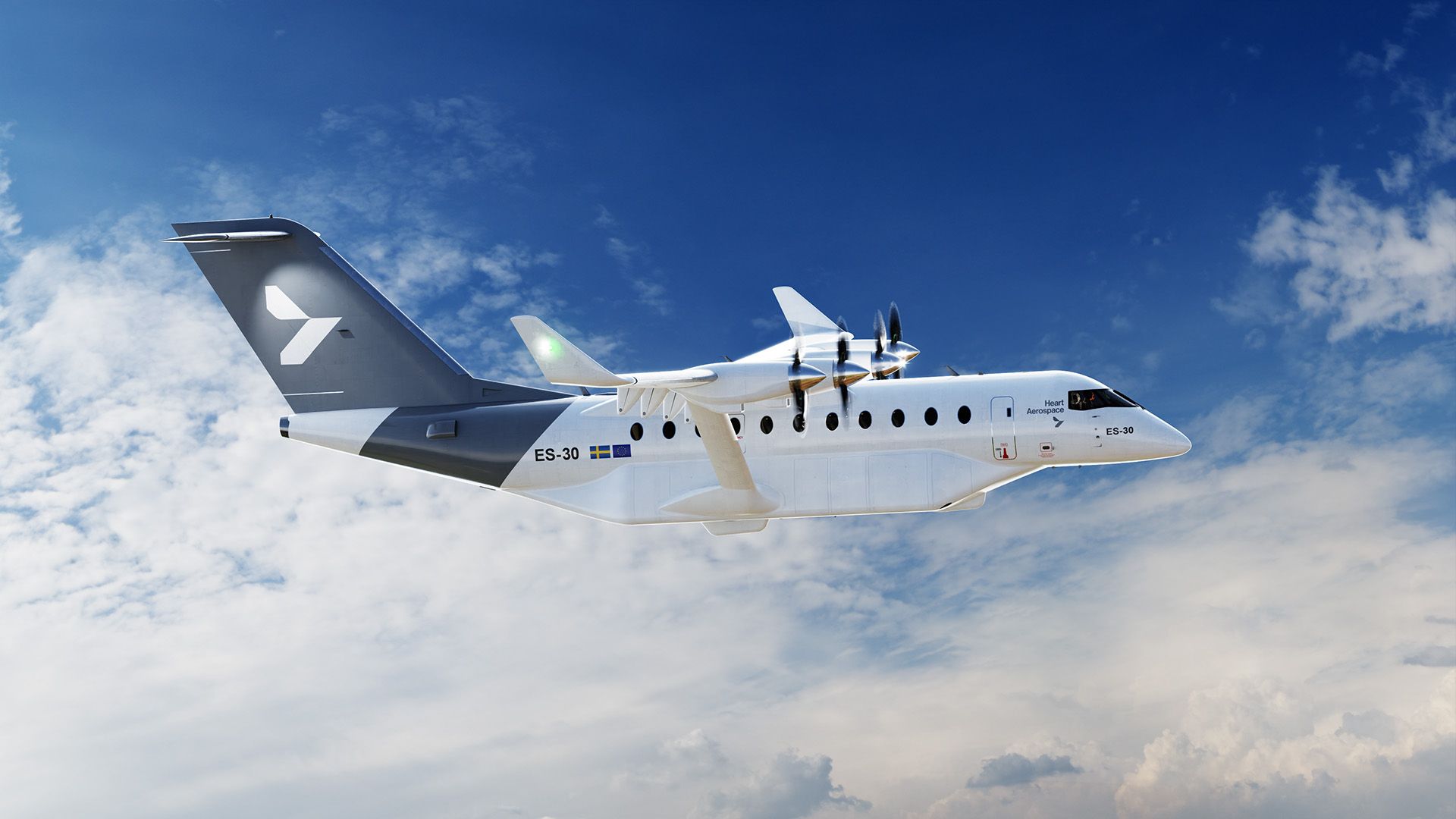Electric flight was once seen as an impossibility, but it seems the day is getting closer when aircraft powered by battery technology will become as acceptable as electric cars. Today, Heart Aerospace, a Swedish startup working on hybrid electric aircraft, has had two big votes of confidence from major airlines.
Not only that, but the company has for the first time revealed its newest airplane design. Having previously gained much interest for its 19-seat ES-19, the planemaker today unveiled the larger brother of the regional aircraft, a 30-seat electric aircraft called the ES-30.
Air Canada signs purchase agreement for 30 ES-30
Air Canada has today announced its intention to buy 30 of the ES-30 electric aircraft from Heart. The purchase agreement also includes a $5 million equity stake in Heart Aerospace, giving the company valuable capital to continue its research and development.
President and Chief Executive Officer of Air Canada, Michael Rousseau, commented on the deal, stating,
"The introduction into our fleet of the ES-30 electric regional aircraft from Heart Aerospace will be a step forward to our goal of net zero emissions by 2050.
“Already, Air Canada is supporting the development of new technologies, such as sustainable aviation fuels and carbon capture, to address climate change. We are now reinforcing our commitment by investing in revolutionary electric aircraft technology, both as a customer for the ES-30 and as an equity partner in Heart Aerospace."
The airline expects the ES-30 to enter service in 2028, and sees it as a vital addition to allowing it to continue serving regional routes more sustainably. At present, Air Canada operates a number of regional aircraft via its brand Air Canada Express – all owned and operated by Jazz Air.
None of its aircraft are as small as the ES-30; the smallest active aircraft in the Jazz fleet is the CRJ200, seating 50. But with some of the regional routes to small communities that Jazz flies for Air Canada, they likely operate with plenty of empty seats. The ES-30 would give these regional routes a more size-appropriate option, and with zero emissions when running on battery power.
SAS indicates interest
SAS has been a supporter of Heart Aerospace since 2019, when it joined up with the Nordic Network for Electric Aviation (NEA), an initiative funded by Nordic Innovation to further the development of electric planes. Also involved in the network are Air Greenland, Avinor, Braathens Regional Airlines, El-fly AS, Finnair, Icelandair, NISA (Nordic Innovation Sustainable Aviation), RISE, SAS and Swedavia.
Now, the airline has indicated its interest in adding the ES-30 to its fleet, but without specifying the number of units it might eventually buy. It has signed a letter of support, and has also joined the Industry Advisory Board for Heart Aerospace to assist in defining the requirements of the ES-30.
SAS President and CEO Anko van der Werff commented,
“Together with the entire industry, we have the responsibility to make air travel more sustainable. SAS is dedicated to transforming aviation so that coming generations can continue connecting the world and enjoy the benefits of travel – but with a more sustainable footprint. The letter of support with Heart Aerospace is an important step in that direction.”
Saab invests $5 million
While perhaps not as exciting as the airplane orders, today has also seen the announcement of Saab investing a cool $5 million in Heart Aerospace to become a miniroty shareholder. Saab said that this investment underlines its commitment to innovative technology and solutions for sustainable aviation.
Anders Forslund, founder and CEO of Heart Aerospace, commented,
“We are thrilled to have two such strong partners as Saab and Air Canada join our mission to electrify regional air travel.
“Growing up in Sweden, Saab is synonymous with aerospace, and our partnership will not only support our programme, but help us to become a part of the proud Swedish aerospace heritage.
“Air Canada is a strategically important partner with one of the world’s largest networks operated by regional turboprops, and as a progressive, future leaning company.”
More customers upgrade
With the reveal of the larger aircraft, Heart Aerospace has seen a number of its already-announced customers for the ES-19 switching up to the larger variant. Letters of intent for the ES-30 have been received from Braathens Regional Airlines (BRA), Icelandair and SAS as well as New Zealand’s Sounds Air.
Swedish lessor Rockton has also signed a letter of intent for up to 40 airplanes. In total, Heart Aerospace has letters of intent so far for 96 ES-30s.
What is the ES-30?
The ES-30 is a 30-seat regional aircraft designed to run on a combination of batteries and reserve hybrid turbogenerators capable of using 100% SAF. On all electric power, it can fly for 200 km (125 miles) with current battery technology. Using hybrid power, this extends to 400 km (250 miles), and in a low-density configuration, it is proposed to be capable of reaching up to 800 km (500 miles).
As battery technology improves, Heart Aerospace projects these ranges will increase. By the late 2030s, it hopes the ES-30 will be able to travel 400 km (250 miles) on all-electric power, and up to 600 km (375 miles) on hybrid.
So far, the company has been working on a smaller aircraft – the ES-19. This is a 19 seat airplane which will have a 400 km (250 mile) range with battery charging in less than 40 minutes. Finnair has signed to receive up to 20 of the type, while United Airlines intends to purchase 100.
A subscale model of the ES-19 was flown successfully in December last year, which you can watch in the video above. Now comes the challenge of scaling this up to the production ES-19 size, and then augmenting that airplane to meet the requirements of the ES-30.
It’s a long road ahead, no doubt, but with the support of a number of major airlines already on board, everyone is rooting for Heart to make a success of its initiative.

